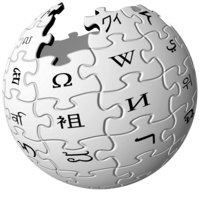Støt Wikipedia

Wikipedia er, som det efterhånden må være de fleste læsere bekendt, det mest omfattende gratis leksikon på Internettet.
Wikipedia er opbygget som en wiki, hvilket betyder, at alle leksikonnets læsere umiddelbart kan gå ind og redigere i eksisterende artikler eller tilføje deres egne, hvis de har lyst.
På denne måde - ved et samarbejde mellem mange tusind mennesker, som frivilligt har bidraget med deres egen viden - har man samlet et leksikon, der trods en varierende kvalitet af artiklerne og enkelte problemer, der skyldes manglen på faste redaktører (hvilket man er i færd med at gøre noget ved), rent faktisk kan konkurrere med Encyclopaedia Britannica i både omfang og kvalitet.
En undersøgelse foretaget af det videnskabelige tidsskrift Nature viste således, at de to leksika kvalitetsmæssigt ligger meget tæt på hinanden:
Among 42 entries tested, the difference in accuracy was not particularly great: the average science entry in Wikipedia contained around four inaccuracies; Britannica, about three.Konklusionen synes ret oplagt: Begge leksika indeholder en del små og få store fejl, og er overordnet set af cirka samme kvalitet; Britannica er stadig lidt bedre - men det varer næppe længe.
Considering how Wikipedia articles are written, that result might seem surprising. A solar physicist could, for example, work on the entry on the Sun, but would have the same status as a contributor without an academic background. Disputes about content are usually resolved by discussion among users.
But Jimmy Wales, co-founder of Wikipedia and president of the encyclopaedia's parent organization, the Wikimedia Foundation of St Petersburg, Florida, says the finding shows the potential of Wikipedia. "I'm pleased," he says. "Our goal is to get to Britannica quality, or better."
(...)
Nature's investigation suggests that Britannica's advantage may not be great, at least when it comes to science entries. In the study, entries were chosen from the websites of Wikipedia and Encyclopaedia Britannica on a broad range of scientific disciplines and sent to a relevant expert for peer review. Each reviewer examined the entry on a single subject from the two encyclopaedias; they were not told which article came from which encyclopaedia. A total of 42 usable reviews were returned out of 50 sent out, and were then examined by Nature's news team.
Only eight serious errors, such as misinterpretations of important concepts, were detected in the pairs of articles reviewed, four from each encyclopaedia. But reviewers also found many factual errors, omissions or misleading statements: 162 and 123 in Wikipedia and Britannica, respectively.
Eftersom positionen som verdens mest besøgte onlineleksikon kræver serverplads - og serverplads koster penge - har Wikipedias stifter Jimmy Wales udsendt nedenstående appel om økonomisk hjælp:
Wikipedia is based on a very radical idea, the realization of the dreams most of us have always had for what the Internet can and should become. Thousands of people, all over the world, from all cultures, working together in harmony to freely share clear, factual, unbiased information... a simple and pure desire to make the world a better place.Og jeg vil tilføje til de, der som jeg ikke rigtig kan undvære et beløb: Hvis du har en viden om et område, som endnu ikke er dækket af Wikipedia, så bidrag med den!
This is a radical strike at the heart of an increasingly shallow, proprietary and anti-intellectual culture. It is a radical strike at the assumption that the Internet has to be a place of hostile debate and flame wars. It is an appeal to the best within all of us.
(...)
Reporters are always asking me why I'm doing this, why Wikipedians do this? I think you know why.
I can't speak for everyone, but I can speak for myself. I'm doing this for the child in Africa who is going to use free textbooks and reference works produced by our community and find a solution to the crushing poverty that surrounds him. But for this child, a website on the Internet is not enough; we need to find ways to get our work to people in a form they can actually use.
And I'm doing this for my own daughter, who I hope will grow up in a world where culture is free, not proprietary, where control of knowledge is in the hands of people everywhere, with basic works they can adopt, modify, and share freely without asking permission from anyone.
We're already taking back the Internet. With your help, we can take back the world.
Please consider a generous donation to the Wikimedia Foundation.
Eller, hvis du en dag går ind på en Wikipedia-artikel og opdager, at der er en fejl, så nøjes ikke med at brokke dig over det: Ret den!
Wikipedia er et af de mest ambitiøse forsøg på at gøre viden gratis tilgængelig for alle, der endnu er lanceret, og fortjener vor fulde støtte.
(Update: Denne artikel genudsendes, da jeg synes den er vigtig nok til at den skal "frem" til forreste side igen; og husk så at skrive en Wikipedia-artikel i dag, hvis der er noget, du er kvalificeret til at skrive!)
